Starting with the bad news, to get it out of the way, both barred owls and the oriole required euthanasia. The coracoid fracture on the oriole didn’t heal for flight; the wing fracture on one barred didn’t heal for flight; the dislocated wing on the other barred apparently damaged nerves or tendons, making flight impossible. Some weeks just suck like that.
And late this morning, a brown-headed cowbird with no apparent injuries came in. The finders first saw it late yesterday and when it hadn’t moved this morning, they decided it needed help. It was way too calm on intake and died within three hours, without ever touching the food or water in its pen. This is the time of year people start dousing everything in sight with insecticides and pesticides, with no regard for the wildlife they kill in the process, so it’s very likely the poor bird ate something covered with one of the many toxins people use to keep their yards “beautiful.”
Once Monday’s predicted nasty weather moves through, the red shoulder will go in the flight pen, and not a moment too soon from his perspective. The red tail remains a laid-back guest and will go back in the raptor flight after the red shoulder is released. The overwintering flyers are, as you saw last week, ready to go as soon as the weather cooperates.
Last Sunday night, in the rain, a couple made the 90-minute one-way trip from their county to bring two two-to-three week old flyers to LWR. They said the tree had been down since that Friday but they didn’t discover the babies until near dark Sunday, by which time one had died. They put the two surviving babies on heat and got them to LWR late Sunday night. Upon arrival they were warm but dehydrated and hungry—and couldn’t be fed until they were rehydrated. In all the years I’ve worked with flyers, I’ve never had babies come in so hungry they were actually crying, but these wee ones were, bless their sweet little hearts.
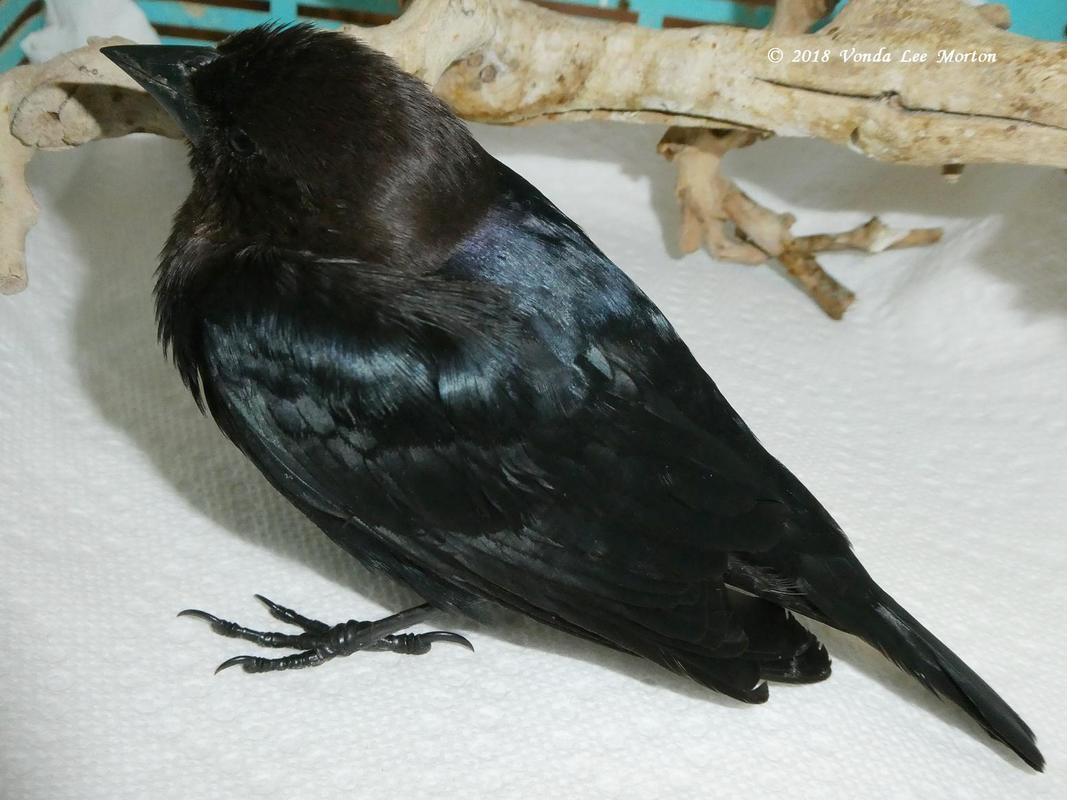
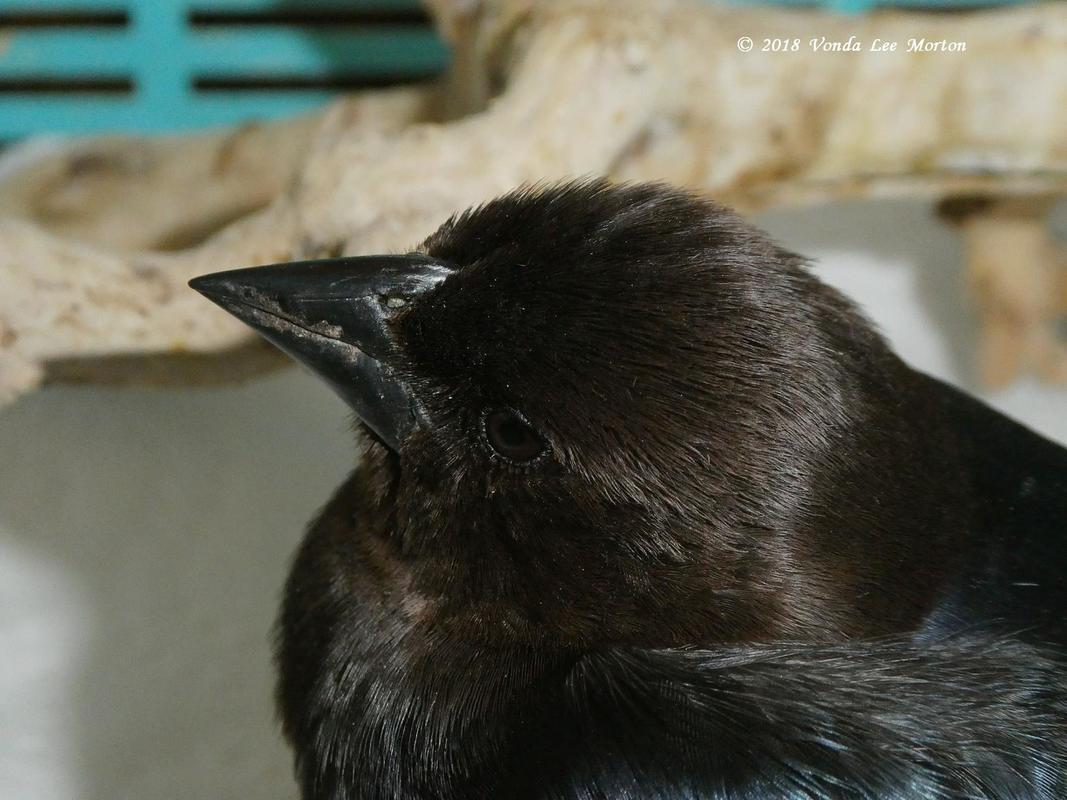
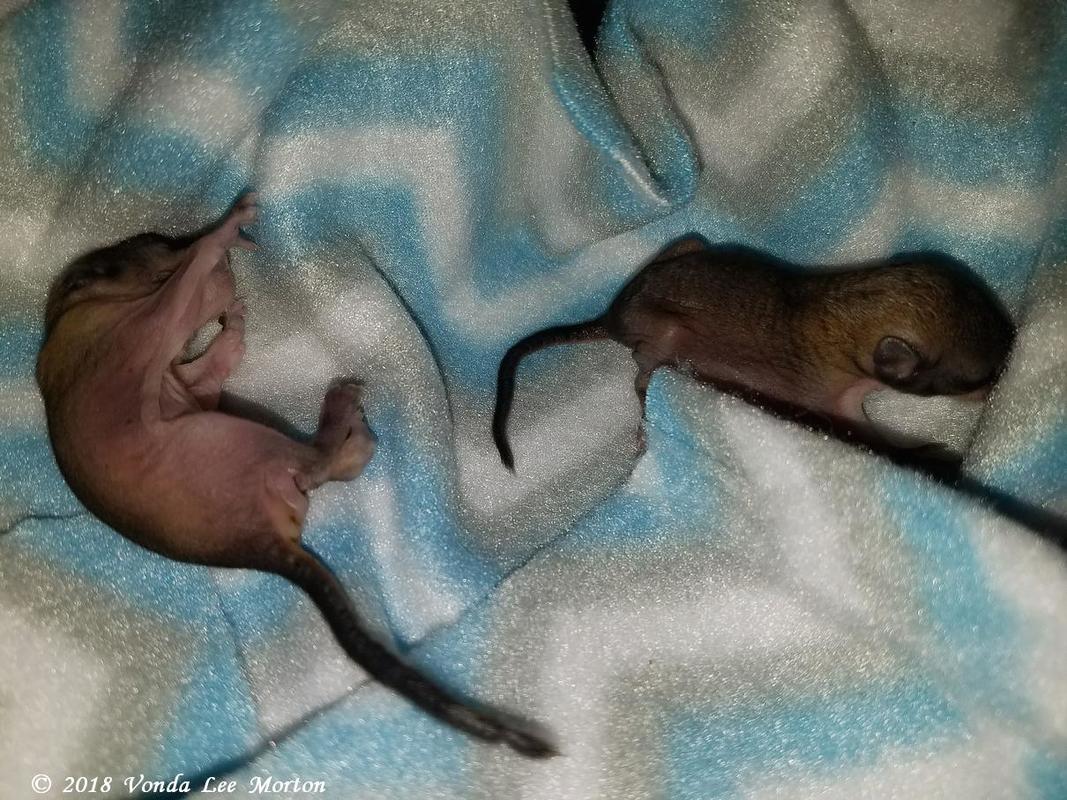
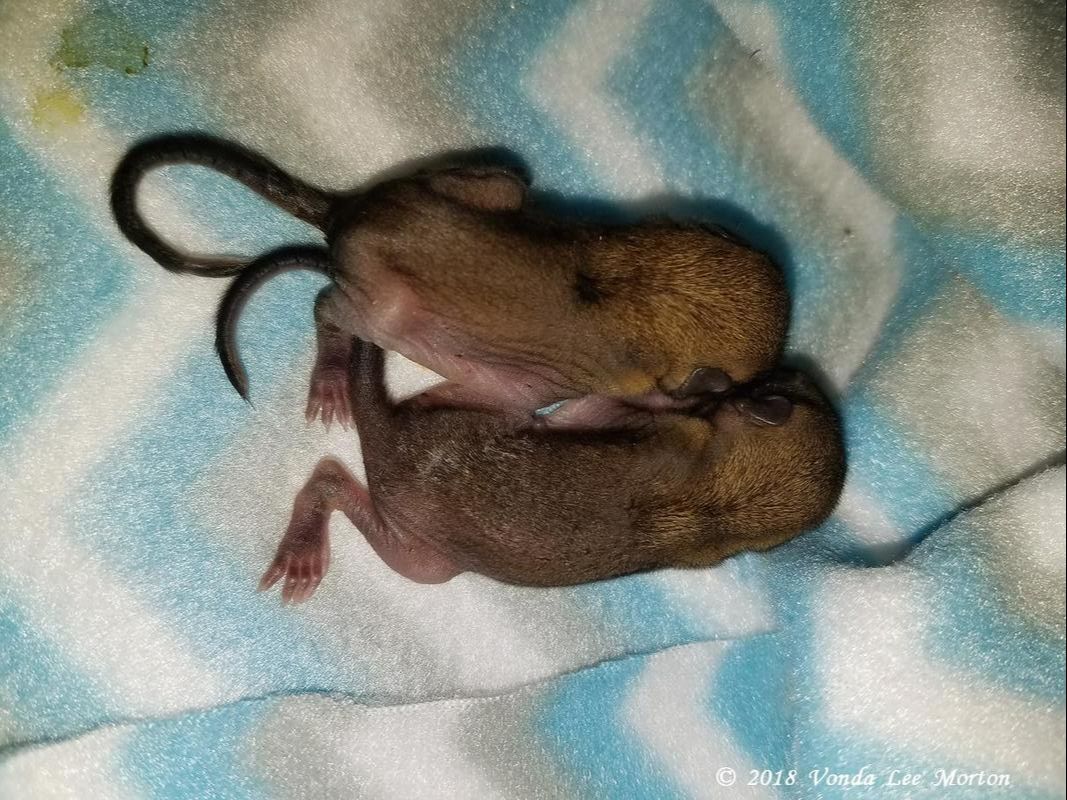
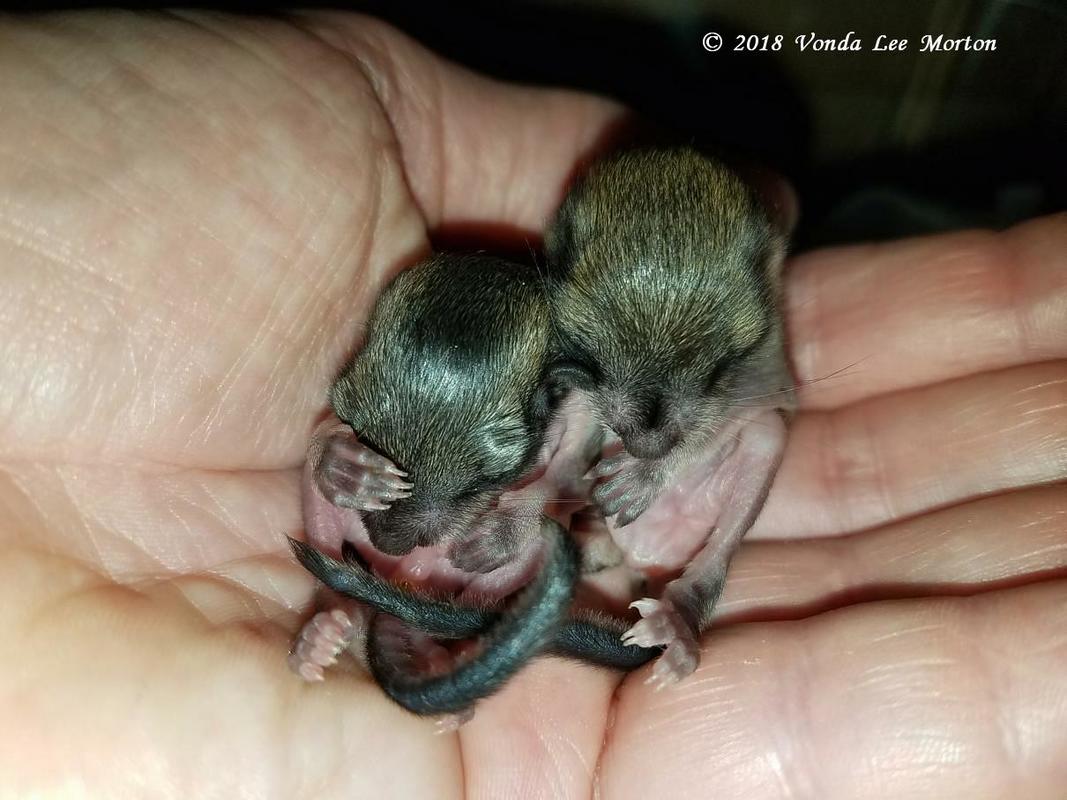
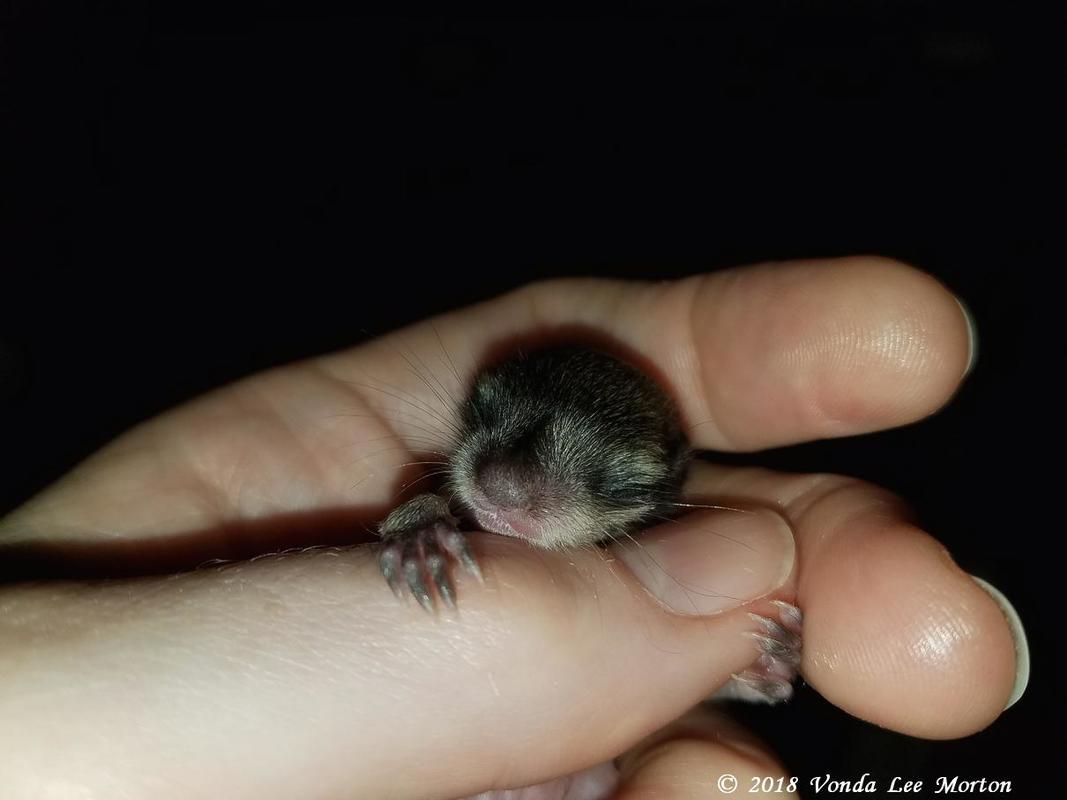
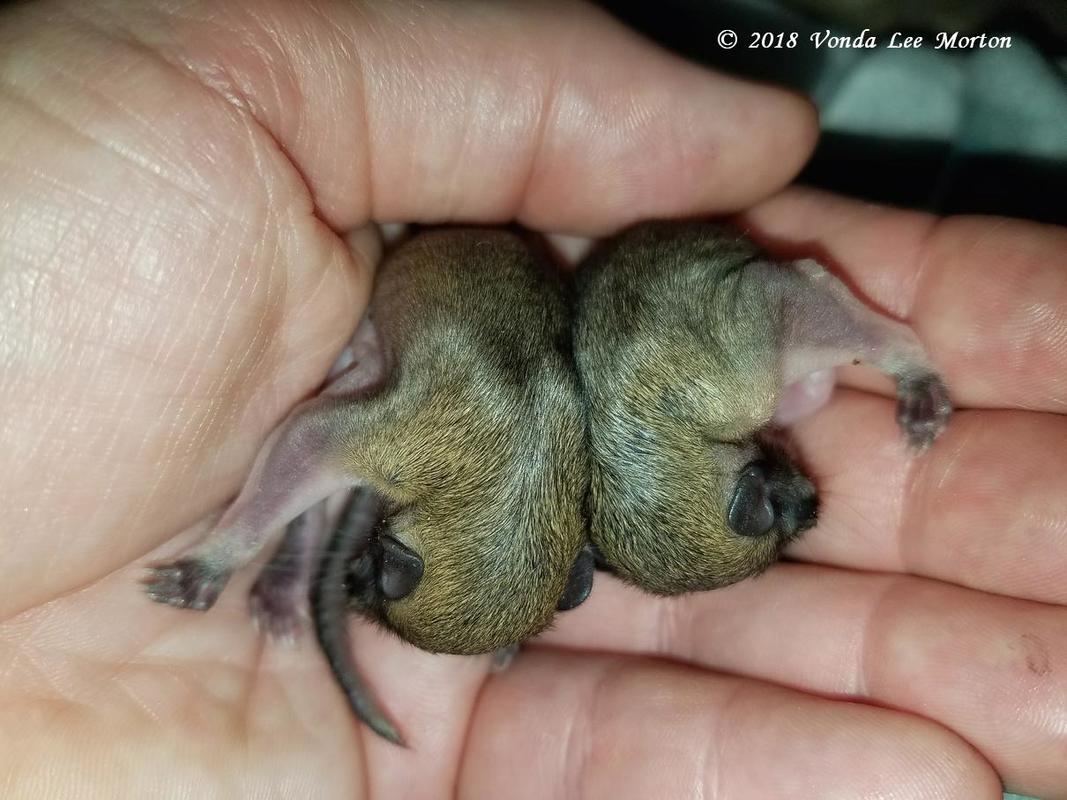
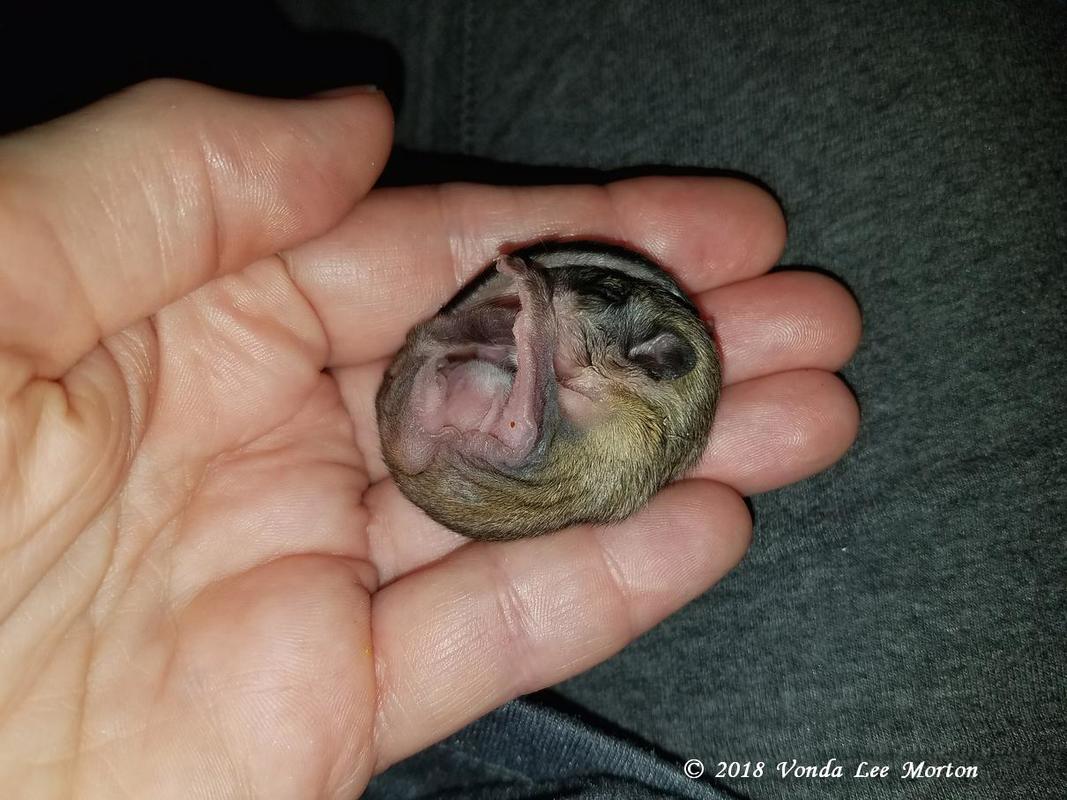
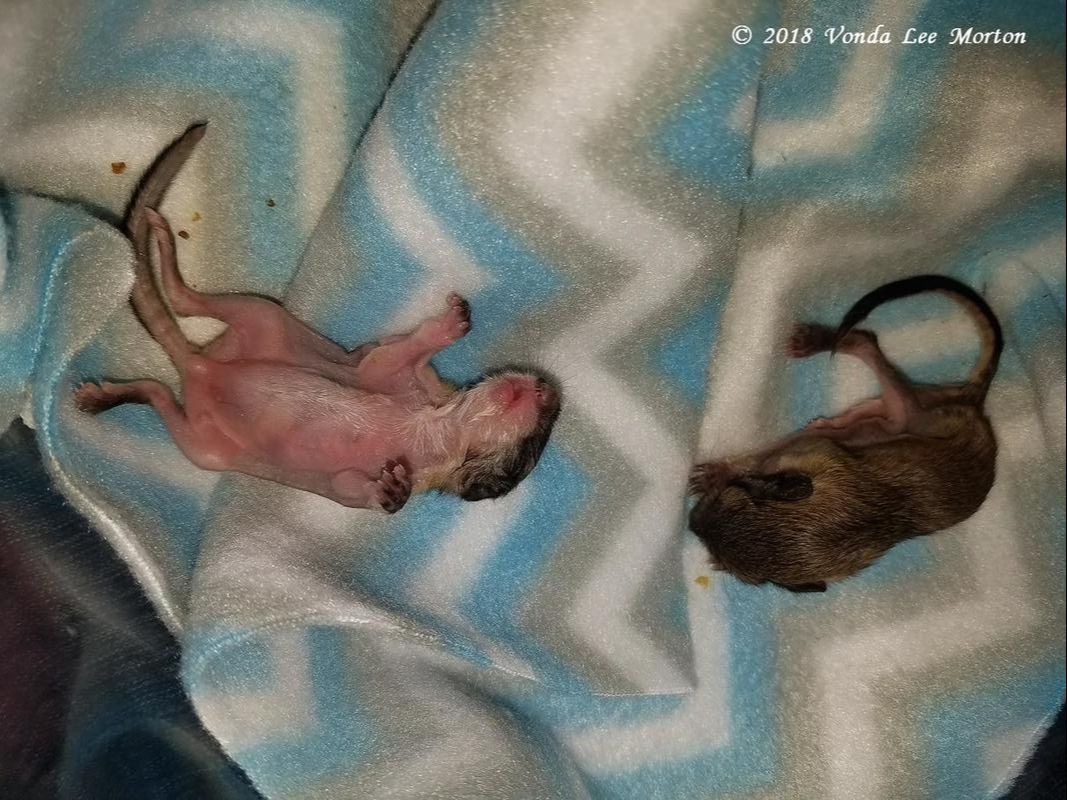
 RSS Feed
RSS Feed
